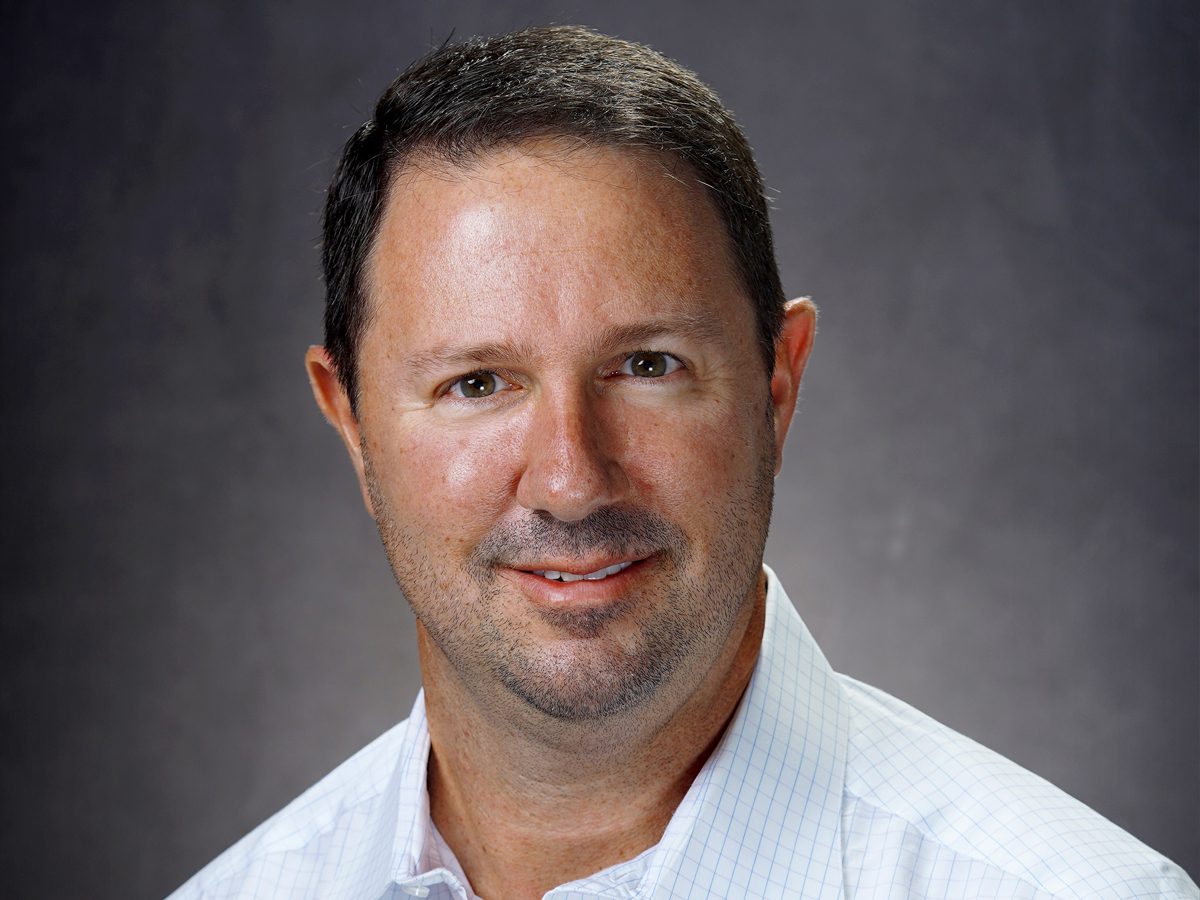Greg Taylor, DO

Greg Taylor, DO
Medical Director, Cooper Care Alliance
A patient-first approach
One of the most important aspects of healthcare is ensuring patients always have access to their doctors, says Cooper primary care physician Greg Taylor, DO.
“The relationship between doctors and patients is a sacred thing, and it’s vital we preserve that,” he says.
That philosophy is what drives his work as the medical director of Cooper Care Alliance, a new physician group operated by Cooper University Health Care that employs community-based medical professionals with a singular focus: patient care.
This new physician group model at Cooper, he says, offers all the benefits of a large, integrated academic healthcare system with the intimacy of a smaller independent physician’s office. The physicians in Cooper Care Alliance are employed by Cooper but do not have academic faculty appointments where they would also teach residents or do research.
“When you’re seeing patients, you’re on the ground floor, you’re on the front lines, and you’re better able to make decisions based on what’s happening day-to-day, not theoretically.”
In fact, Taylor devoted the early years of his career to academic medicine. He taught as an assistant professor at the University of Medicine and Dentistry of New Jersey after completing both a residency and an internship in family medicine at the school. But later, he found what really made him feel fulfilled was seeing patients day to day.
“I always knew I wanted to do something every day that gave me a sense of purpose, that made me want to go to work every morning,” says Taylor. “It was clear to me that I loved the long-term care of family medicine. You get to see the same patients over years, not months, so you really get to be part of helping people live a healthy life.”
Established in September 2020, while COVID-19 cases were still soaring, Cooper Care Alliance places a strong emphasis on patient access.
“We stay open until 8pm almost every night, have weekend hours and offer same-day appointments,” says Taylor. “In the middle of a pandemic, that’s a big thing. If you develop Covid-like symptoms or need your children to be cleared to go back to school, you shouldn’t have to wait days – or even weeks – to access that care.”
Even with his administrative duties, like creating program policies and procedures for the group and leading the way on innovative initiatives, Taylor still spends half of his time seeing patients. That, he says, is crucial to his success in leading Cooper Care Alliance.
“When you’re seeing patients, you’re on the ground floor, you’re on the front lines, and you’re better able to make decisions based on what’s happening day-to-day, not theoretically,” says Taylor.
Taylor says Cooper Care Alliance relies on physician input as well.
“Most programs track patient satisfaction very closely, but we place a large emphasis on physician satisfaction,” he says. “We want to know if they’re happy, if they feel they’re able to take enough time off, if our policies are helping or hurting their patients and their practice.”
It’s really important the system works for the physicians, says Taylor, because that helps them provide the best care possible for their patients.
“We want to make sure everyone is involved, everyone has a voice,” he adds. “When it comes down to it, that’s the key to continuing to improve healthcare.”
Reducing the wait for mental health care
For so long, behavioral health has been carved out from the rest of medical care, says Greg Taylor, DO, medical director of Cooper Care Alliance. He wants to change that.
Currently, Taylor is working with his team on integrating behavioral health services into the primary care network.
“To say that, historically, the communication between behavioral health providers and primary care was bad is an understatement – it just didn’t exist,” says Taylor. “Mental health is such a huge part of what we see every day in primary care, but access to those services is a big problem. It’s not uncommon for us to see a patient with depression or anxiety or even a serious behavioral health issue and refer them to a specialist who can’t see them for 6 months.”
So Cooper Care Alliance brought psychologists right into their office.
Now patients can schedule an appointment within 1 or 2 weeks. “Now, patients can see the psychiatrist, and once they’re stabilized, they’re referred right back to us for maintenance care,” he says. “That might not seem like a big deal, but that frees up the psychologist to be able to take on new patients, and it allows primary care physicians to stay up-to-date on the patient’s entire scope of care.”


